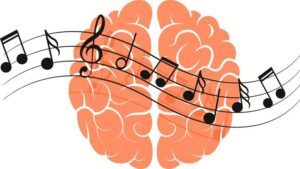Music is an important part of our lives and has been around for thousands of years. But what does music actually do to our brains? In this blog post, we will explore the neuroscience of music and how it affects our brains. We will look at the positive and negative effects of listening to music and how it can impact our mental health. By the end of this post, you should have a better understanding of how music affects the brain and how it can be used to improve your overall wellbeing.
Visit Here: Read entire article at Washington Post
The Neuroscience Of Music
Listening to music can be a powerful way to relax and de-stress. It’s also been shown to have a number of mental health benefits, such as promoting physical/mental healing and increasing mood. In this section, we’ll be exploring the neuroscience behind music and its effects on the brain.
Music affects the brain in a number of different ways. First, music has been shown to increase levels of happiness and well-being. This is likely due to the fact that it has a positive effect on the amygdala – an area of the brain that is responsible for regulating emotion. Additionally, musical training has been shown to increase neural pathways in areas like language, speech, and emotion processing. This means that children who learn to play an instrument develop better communication skills and are better at recognizing emotions in other people.
Different types of music have different effects on the mind. For example, classical music has been shown to have a calming effect while rock music can stimulate activity in various parts of the brain. The relationship between musical pitch, hearing, memory recall, and mood is still under investigation but appears to be complex. It appears that certain frequencies may activate certain parts of our brains while others may have an emotional impact on us.
While listening to music can be beneficial for your mental health, it’s important not to overdo it – too much listening can actually lead to negative consequences like hearing loss or tinnitus (a ringing noise in one’s ears). That being said, there’s no harm in enjoying some tunes from time-to-time! In addition to listening passively (through headphones or speakers), you can also take advantage of Music Therapy which uses sound therapy specifically designed for mental health disorders such as anxiety or depression.
The Positive Effects Of Listening To Music
Music has been around for centuries, and its benefits are well known. From reducing stress and anxiety to improving mood, energy, and overall well-being, music has a host of positive effects on the human body and mind. Below, we’ll take a look at some of the ways that music can be used in the workplace.
First and foremost, music can help reduce stress and anxiety. Research shows that listening to music has a positive effect on both mental and physical health – reducing stress levels can have a significant impact on your overall health. In addition, listening to music has been shown to improve memory recall and learning skills. Additionally, it may be beneficial for people living with Alzheimers or dementia – studies have shown that listening to calming music may help improve cognitive function in these patients.
Creativity is another area where music excels. Recent studies have shown that listening to classical or instrumental pieces can increase creativity in both children and adults. Furthermore, creative thinking is related to increased productivity in many industries – so why not give your employees some added creativity boost?
Music also has the ability to help regulate emotion. For example, when someone is feeling angry or upset, listening to calming music may help them calm down quickly. Additionally, certain types of classical or instrumental pieces can be used as forms of therapy – providing relief for individuals who are dealing with issues like depression or anxiety disorders.
Music also plays an important role in helping people stay motivated and focused throughout their day-to-day tasks. When you listen to motivating tunes throughout the day, it encourages you stay on track without feeling overwhelmed or stressed out by work demands. Finally, using songs as sleep aids has been proven effective by many research studies – helping people get more restful sleep which can improve their overall well-being.
The Negative Effects Of Music On The Brain
Music has been a part of human culture for centuries, and for good reason. It can be used to alter or suppress a person’s mood, and it can have positive effects on the brain as well. However, there are also negative effects to taking in too much music. Certain types of music have been linked to impairments in cognitive functioning, such as aggressiveness and impaired memory recall. Additionally, listening to music for long periods of time can reduce attention span and focus.
When it comes to psychological manipulation, certain types of music can influence thought processes and behavior. For example, certain types of rock music are often associated with aggression. This is because the drums and guitars create a intense auditory stimulus that is difficult to resist. Similarly, many people who listen excessively to classical or jazz music tend to exhibit less empathy towards other people – a trait that has been linked with violence in some cases.
Read Also More: How music helps mental health
As you can see, there are both positive and negative effects to listening to music on the brain. The key is finding the right type of music for you – something that will not have any negative effects on your mental health or your concentration levels!
How Noise Pollution Affects Mental Health
Noise pollution is a major problem in today’s world, and it’s having negative impacts on mental health. In this section, we will discuss the different ways that noise pollution affects mental health, as well as the effects of noise levels on cognitive performance. We will also discuss the role of music in regulating emotions and improving memory, as well as the benefits of music therapies in treating mental disorders. We will also look at the long term effects of musical training on the brain, and how environmental sounds can influence mood and stress levels.
As you can see, noise pollution is a serious issue that needs to be addressed. By learning about the ways that noise pollution affects mental health, you can begin to make changes in your own life to improve your overall wellbeing.
In Summary
Music is an integral part of the human experience, and its effects on the brain are manifold. From reducing stress levels to improving cognitive performance, music has been shown to have a positive effect on mental health. It can also be used to regulate emotions and improve memory recall. On the other hand, too much listening can lead to negative consequences such as hearing loss or tinnitus. Noise pollution is another factor that can negatively affect mental health, so it is important to make sure that your environment is noise-free when possible. By taking steps to protect your hearing and managing exposure levels, you can ensure that music remains a positive force in your life for many years to come.


